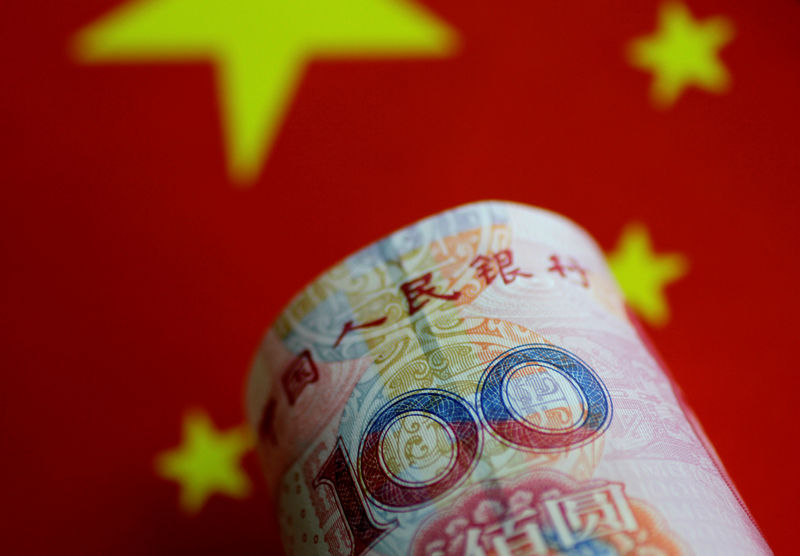SHANGHAI (Reuters) - A pledge by China's state planner to increase the flexibility of the yuan's exchange rate set off market speculation Tuesday that a tweak to official wording could mean changes to the country's tightly managed currency regime.
The pledge came in a report by the National Development and Reform Commission (NDRC) on the first day of the annual meeting of China's parliament, alongside a reiteration of China's intention to maintain currency stability.
China will "continue to improve the exchange rate formation mechanism, increase the yuan's exchange rate flexibility, strengthen regulations on cross-border capital flows, and keep the yuan's exchange rate basically stable at reasonable levels," the NDRC report said.
The annual session of the National People's Congress (NPC) is one of the most important economic and political events in China, setting out the government agenda for the year. Delegates pass major bills, approve the budget and endorse personnel nominations.
Raymond Yeung, chief economist for Greater China at ANZ in Hong Kong, said markets could interpret the mention of increased flexibility to indicate an openness to "competitive devaluation" of the yuan.
In late February, the United States government was reported to be pressing China to pledge not to devalue the yuan as part of a deal to end their trade war.
But Yeung said in a note Tuesday that a significant change in China's policy was unlikely.
He said such a change would require China to let the yuan float as cross-border flows are liberalized, in line with a principle known as the "Impossible Trinity" that a country cannot simultaneously achieve free capital movement, independent monetary policy and a stable exchange rate.
DEVALUATION IN 2015
Yeung said China's policy of exchange-rate flexibility in fact began with a sharp one-off devaluation of the yuan in August 2015, a move that roiled global financial markets.
The central bank at the time attributed the move to allowing market forces to play a bigger role in deciding the yuan's value.
State Council Research Office Director Huang Shouhong on Tuesday said China was not changing its currency policy, and that it has been making the yuan more flexible.
According to Ken Cheung, senior Asian FX strategist at Mizuho Bank in Hong Kong, the NDRC's pledge of flexibility could even lead to a stronger, rather than a weaker, yuan this year as the People's Bank of China (PBOC) reduces intervention.
"If our interpretation is correct, higher FX flexibility will be biased toward one-way in appreciation rather than two-way," Cheung said.
Despite the speculation, China's yuan remained relatively unchanged on Tuesday. The onshore spot yuan finished the domestic session at 6.7038 per dollar, slightly firmer than the previous late night close of 6.7101 per dollar.

The yuan has strengthened 2.5 percent against the dollar this year.